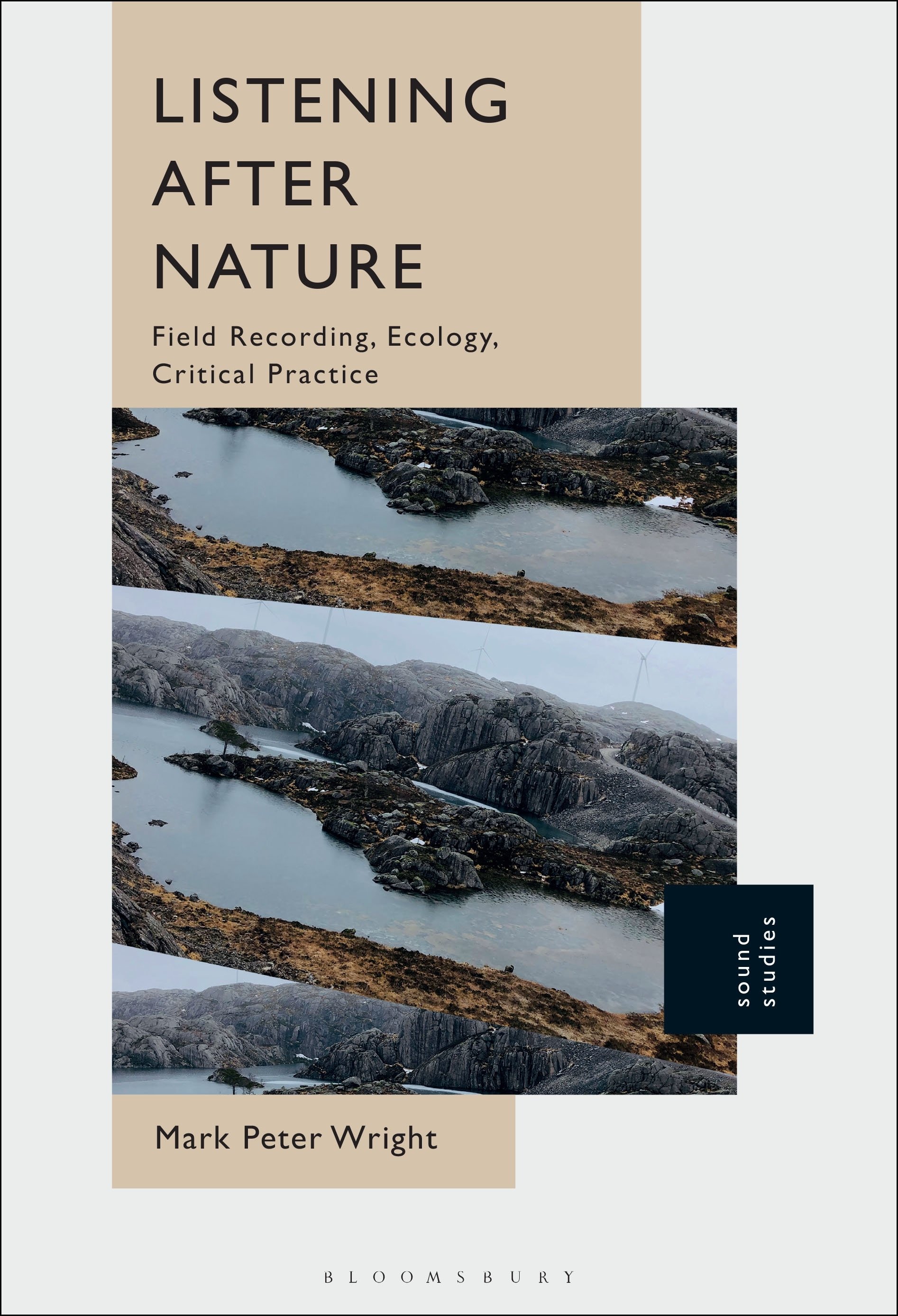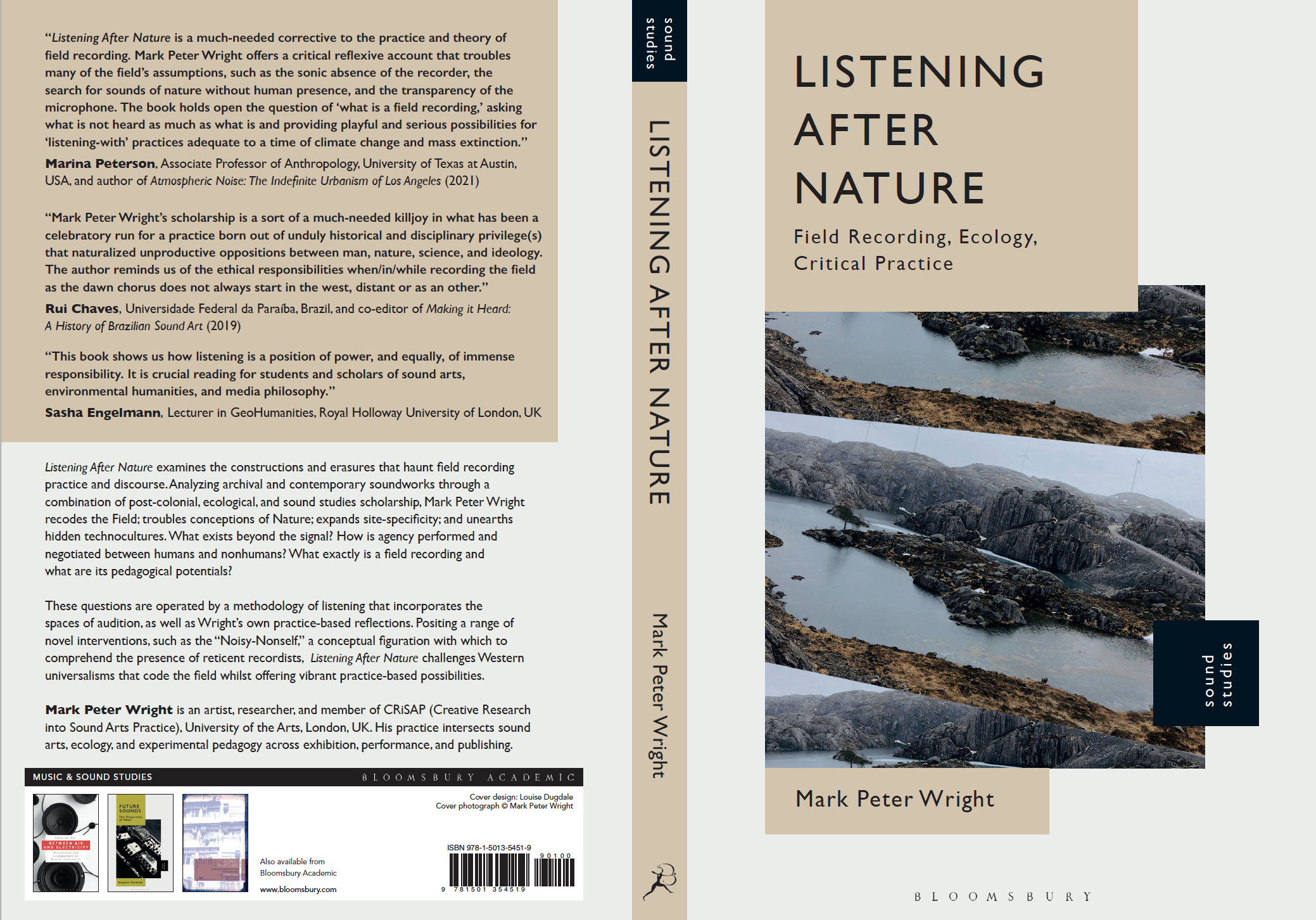Listening After Nature: Field Recording, Ecology, Critical Practice
"A comprehensive and thought provoking book. It brings together popular, new and possibly radical ideas for readers to consider. Wright is another brilliant example of a practicing artist whose passionate interest and work thoroughly informs a clever, heartfelt book." Mariam Rezaei, Wire Magazine.
“The book holds open the question of “what is field recording”, asking what is not heard as much as what is, and providing playful and serious possibilities for “listening-with” practices adequate to a time of climate change and mass extinction.” Marina Peterson, Associate Professor of Anthropology, University of Texas at Austin.
”In the sonic contact zones of shrimps and stars, foley and documentary, signal and voice, this book shows us how listening is a position of power, and equally, of immense responsibility.” Sasha Englemann, Lecturer in GeoHumaities, Royal Holloway University of London.
“a much-needed killjoy in what has been a celebratory run for a practice born out of unduly historical and disciplinary privilege(s) that naturalized unproductive oppositions between man, nature, science and ideology. The author reminds us of the ethical responsibilities when/in/while recording the field as the dawn chorus does not always start in the west, distant or as an other.” Rui Chaves, Universidade Federal da Paraíba, Brazil.
Paperback and Hardback available to order from Bloomsbury
Listening After Nature examines the constructions and erasures that haunt field recording practice and discourse. Analyzing archival and contemporary soundworks through a combination of post-colonial, ecological and sound studies scholarship, Mark Peter Wright recodes the Field; troubles conceptions of Nature; expands site-specificity; and unearths hidden technocultures. What exists beyond the signal? How is agency performed and negotiated between humans and nonhumans? What exactly is a field recording and what are its pedagogical potentials?
These questions are operated by a methodology of listening that incorporates the spaces of audition, as well as Wright's own practice-based reflections. In doing so, Listening After Nature posits a range of novel interventions. One example is the “Noisy-Nonself,” a conceptual figuration with which to comprehend the presence of reticent recordists. “Contact Zones and Elsewhere Fields” offers another unique contribution by reimagining the relationship between the field and studio. In the final chapter, Wright explores the microphone by tracing its critical and creative connections to natural resource extraction and contemporary practice.
Listening After Nature auditions water and waste, infrastructures and animals, technologies and recordists, data and stars. It grapples with the thresholds of sensory perception and anchors itself to the question: what am I not hearing? In doing so, it challenges Western universalisms that code the field whilst offering vibrant practice-based possibilities.
Reviews in: Journal of Sonic Studies | Wire | Vortex Music Journal | Quietus

